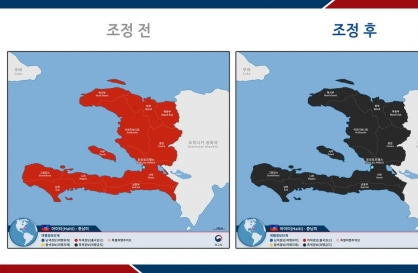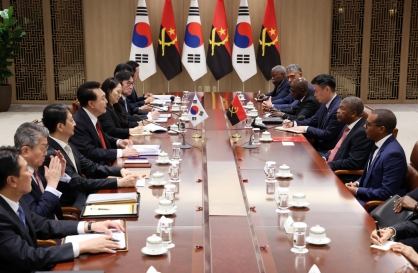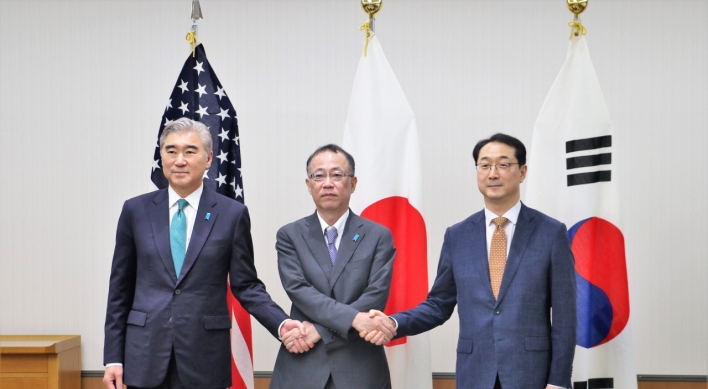Justice Anthony Kennedy’s majority decision last year in Citizens United, which allowed corporations to contribute unlimited sums toward electioneering, was controversial. But the court’s vision of campaign finance disclosure, which was endorsed by every justice except Clarence Thomas, was not.
The court’s call for full disclosure of political contributions is supported by the Obama administration and Democratic leaders in Congress. In the past, it had been openly embraced by Republican leaders John Boehner and Mitch McConnell. Unfortunately, it still bears no relationship to the current reality of American politics.
Congress failed to pass a disclosure bill last year and Boehner, now speaker of the House, has not let another near the floor. The Federal Election Commission could rectify the situation simply by requiring disclosure, as the Supreme Court expected it would, but the six-member commission has been stymied by its three Republican members, who typically block even routine action.
The deadlock has opened the way for anonymous cash in the political system. Karl Rove’s burgeoning Crossroads empire announced this month that it has doubled its fundraising target for the 2012 election, from $120 million to $240 million. Former Obama administration aide Bill Burton has entered the anonymous sweepstakes from the Democratic side, hoping to imitate Rove’s success.
For those wary of anonymous, unlimited donations ― count us among them ― all is not lost. Although Congress and the FEC have shown themselves unwilling to regulate election money, there is still a path through the campaign finance morass.
First, the Obama campaign should maximize its own transparency by going beyond the demands of the law and disclosing the names of donors who contribute $200 or less. In the past, disclosing small donations was a nuisance. But digital technology now makes such disclosure viable. In addition, the president should call on all Democrats ― including those now soliciting anonymous funds ― to adhere to the principle of full disclosure of all donations.
Second, in a promising development last month, 10 law professors petitioned the Securities and Exchange Commission, requesting that the SEC require corporations to disclose to stockholders their political spending. A favorable rule by the SEC wouldn’t resolve all campaign disclosure issues, but in one blow it would make both U.S. business and politics more transparent, enabling shareholders and voters to hold more private- and public-sector leaders accountable.
Finally, the stampede of lobbyists seeking to influence the congressional supercommittee charged with cutting the federal budget should be subject to timely public scrutiny. The committee of six senators and six House members, which must make its recommendations to trim at least $1.2 trillion by Nov. 23, has the ability to affect every corner of the U.S. economy. Under current rules, by the time the public finds out who lobbied or made campaign contributions to members, the panel’s work will be done.
The committee should follow the self-imposed rules that regulatory agencies adopted last year after Congress passed the Dodd-Frank financial reform law. The SEC, Federal Deposit Insurance Corp. and other agencies agreed to list on their websites, within two weeks of the event, every meeting between regulators and lobbyists seeking to influence how the law is carried out.
The FDIC goes even further with its “open door policy,” which allows the public to track Dodd-Frank rulemakings. The commission releases the names and affiliations of everyone who met in the previous two weeks with senior officials to discuss interpretations or implementation of the law.
Congress should reveal the details of all lobbyist visits or campaign contributions to supercommittee members within 24 hours. If Congress feels compelled to vest its power in a supercommittee, the panel should follow supertransparent rules. In lieu of a functional FEC, or of congressional leaders willing to abide by their own endorsements of political disclosure, that’s the very least this Congress can do.
(Editorial, Bloomber)
The court’s call for full disclosure of political contributions is supported by the Obama administration and Democratic leaders in Congress. In the past, it had been openly embraced by Republican leaders John Boehner and Mitch McConnell. Unfortunately, it still bears no relationship to the current reality of American politics.
Congress failed to pass a disclosure bill last year and Boehner, now speaker of the House, has not let another near the floor. The Federal Election Commission could rectify the situation simply by requiring disclosure, as the Supreme Court expected it would, but the six-member commission has been stymied by its three Republican members, who typically block even routine action.
The deadlock has opened the way for anonymous cash in the political system. Karl Rove’s burgeoning Crossroads empire announced this month that it has doubled its fundraising target for the 2012 election, from $120 million to $240 million. Former Obama administration aide Bill Burton has entered the anonymous sweepstakes from the Democratic side, hoping to imitate Rove’s success.
For those wary of anonymous, unlimited donations ― count us among them ― all is not lost. Although Congress and the FEC have shown themselves unwilling to regulate election money, there is still a path through the campaign finance morass.
First, the Obama campaign should maximize its own transparency by going beyond the demands of the law and disclosing the names of donors who contribute $200 or less. In the past, disclosing small donations was a nuisance. But digital technology now makes such disclosure viable. In addition, the president should call on all Democrats ― including those now soliciting anonymous funds ― to adhere to the principle of full disclosure of all donations.
Second, in a promising development last month, 10 law professors petitioned the Securities and Exchange Commission, requesting that the SEC require corporations to disclose to stockholders their political spending. A favorable rule by the SEC wouldn’t resolve all campaign disclosure issues, but in one blow it would make both U.S. business and politics more transparent, enabling shareholders and voters to hold more private- and public-sector leaders accountable.
Finally, the stampede of lobbyists seeking to influence the congressional supercommittee charged with cutting the federal budget should be subject to timely public scrutiny. The committee of six senators and six House members, which must make its recommendations to trim at least $1.2 trillion by Nov. 23, has the ability to affect every corner of the U.S. economy. Under current rules, by the time the public finds out who lobbied or made campaign contributions to members, the panel’s work will be done.
The committee should follow the self-imposed rules that regulatory agencies adopted last year after Congress passed the Dodd-Frank financial reform law. The SEC, Federal Deposit Insurance Corp. and other agencies agreed to list on their websites, within two weeks of the event, every meeting between regulators and lobbyists seeking to influence how the law is carried out.
The FDIC goes even further with its “open door policy,” which allows the public to track Dodd-Frank rulemakings. The commission releases the names and affiliations of everyone who met in the previous two weeks with senior officials to discuss interpretations or implementation of the law.
Congress should reveal the details of all lobbyist visits or campaign contributions to supercommittee members within 24 hours. If Congress feels compelled to vest its power in a supercommittee, the panel should follow supertransparent rules. In lieu of a functional FEC, or of congressional leaders willing to abide by their own endorsements of political disclosure, that’s the very least this Congress can do.
(Editorial, Bloomber)


















